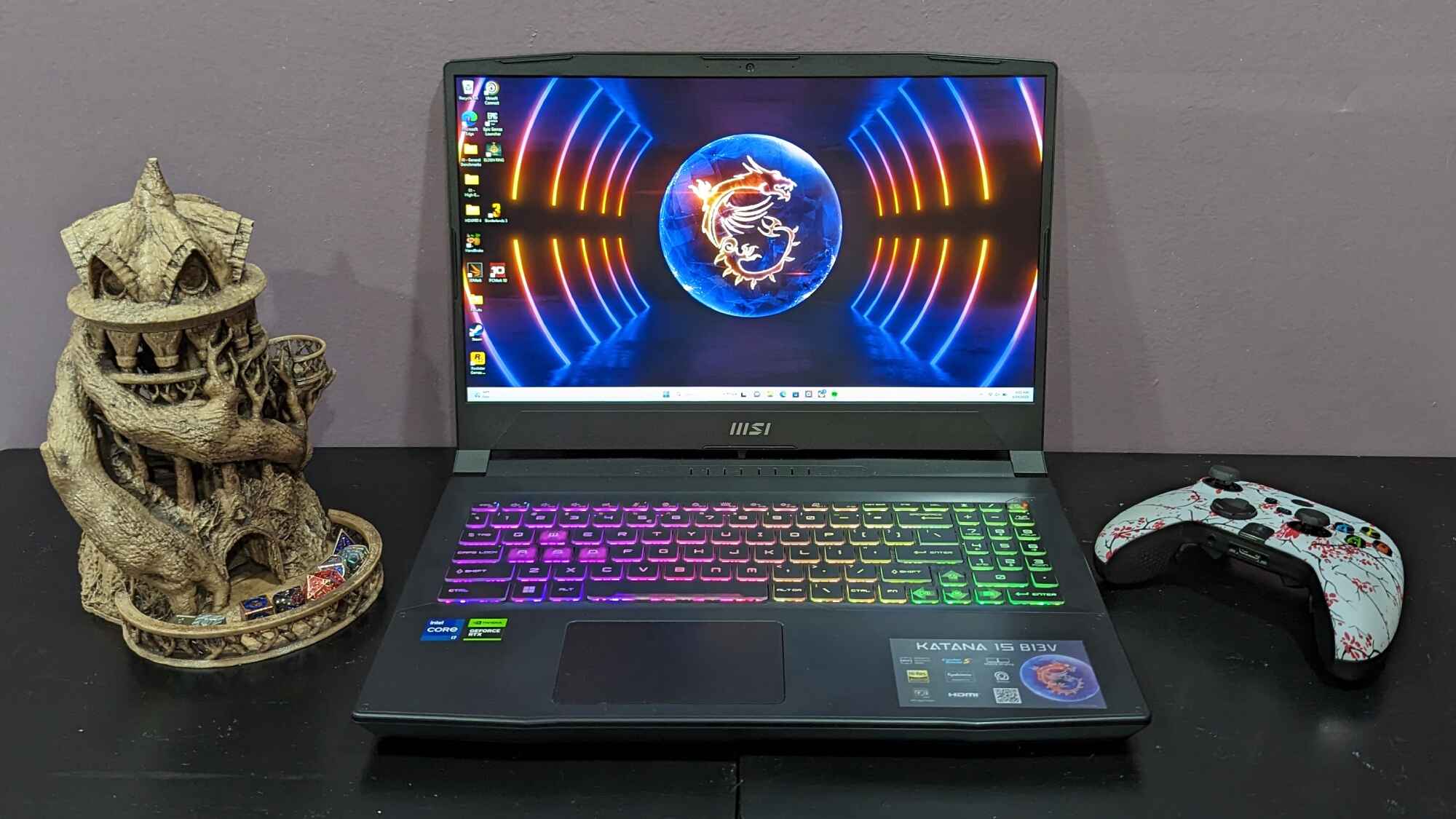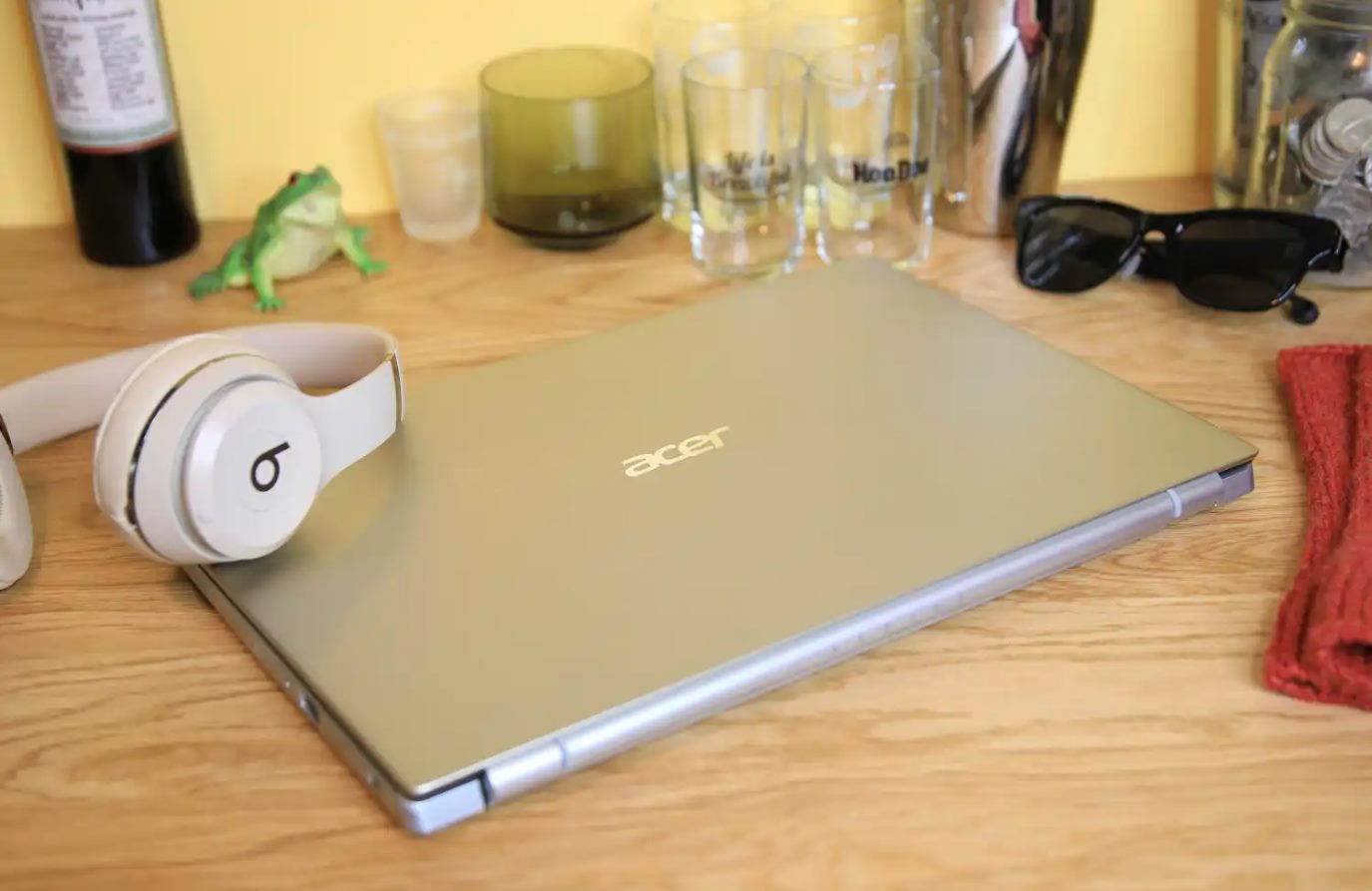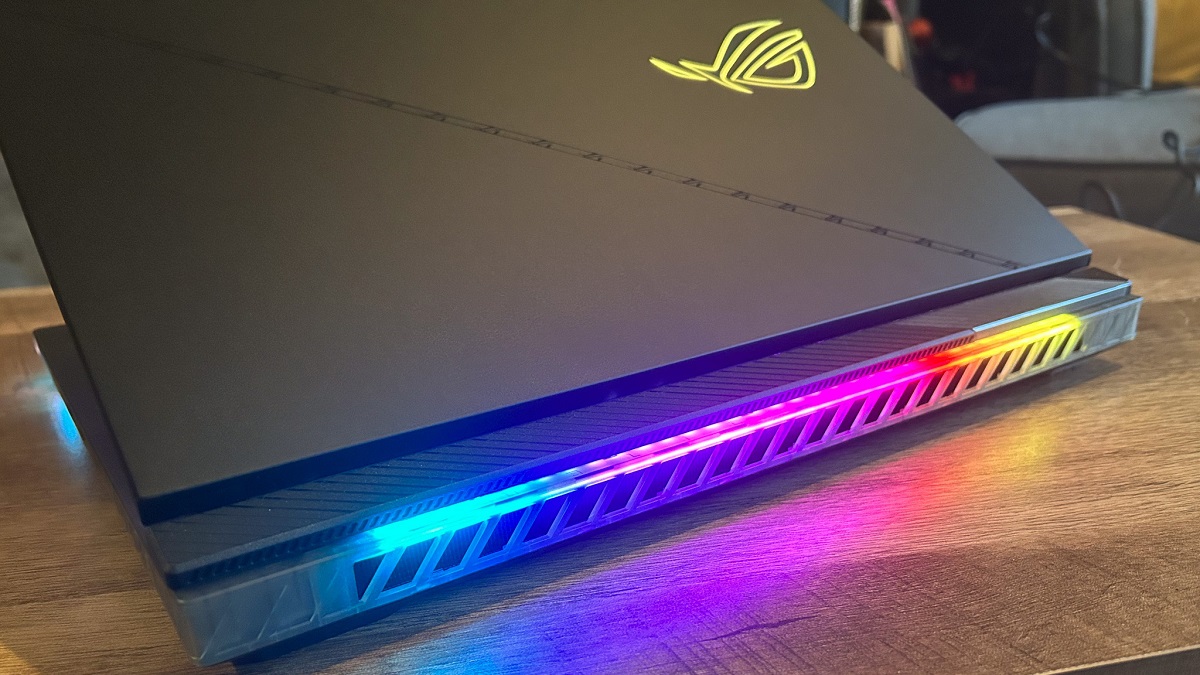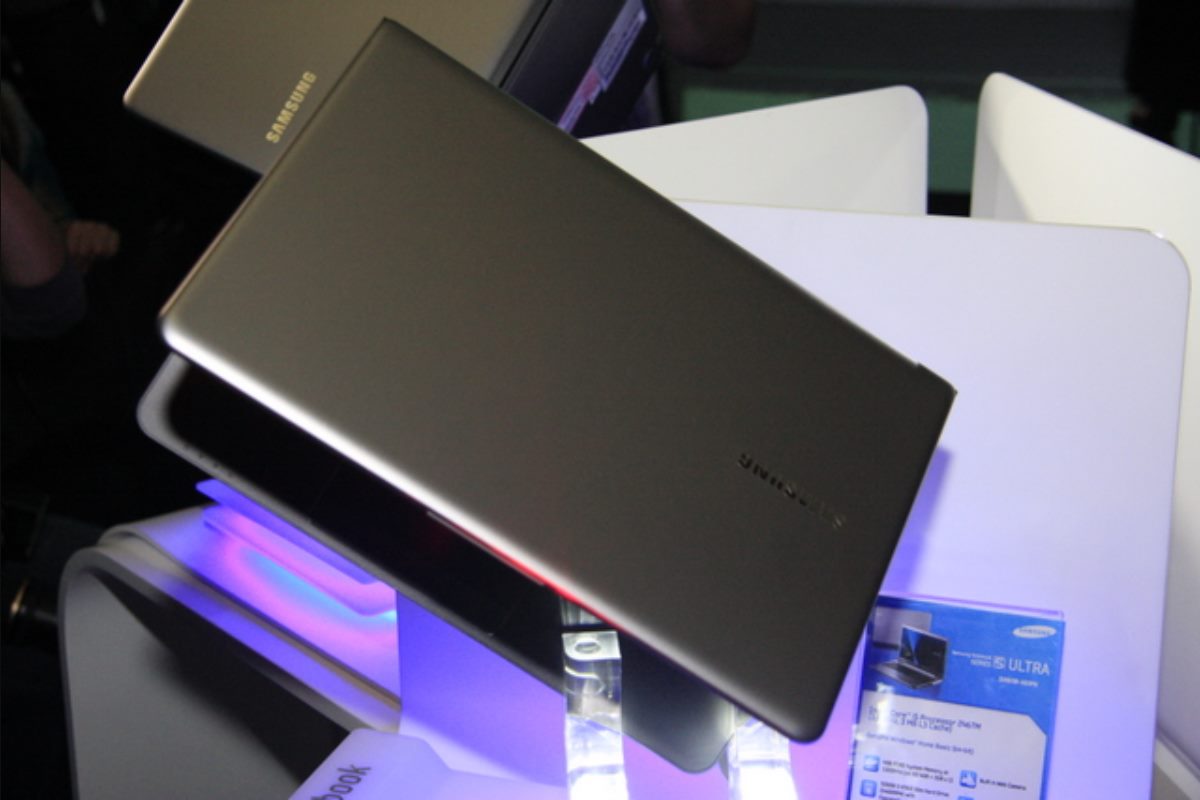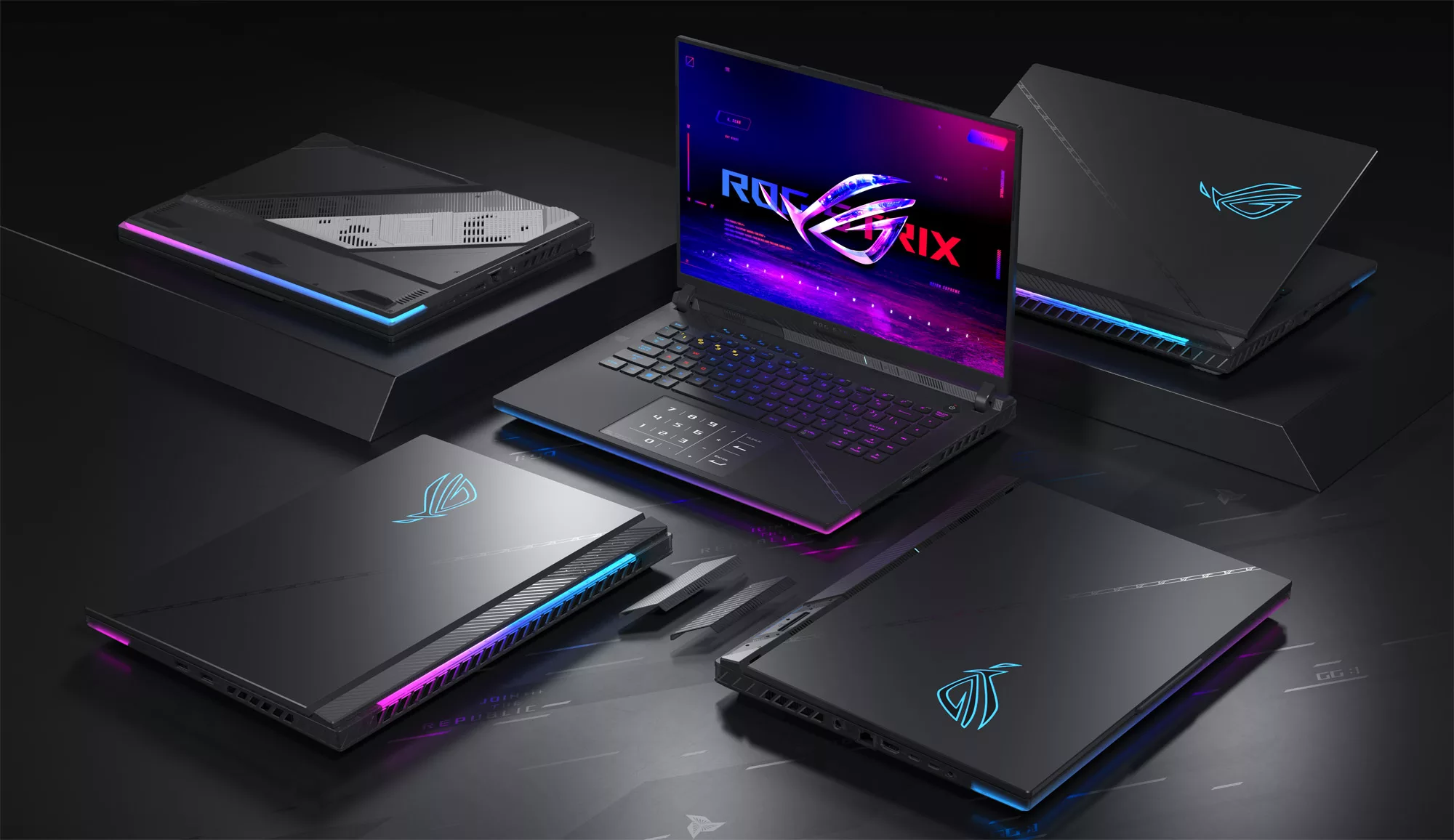Introduction
When it comes to gaming laptops, the adapter plays a crucial role in powering the device and ensuring its optimal performance. However, like any electronic component, adapters can wear out over time and may need to be replaced. Knowing when it’s time to replace the adapter on your gaming laptop is essential to avoid potential damage to your device or interruptions to your gaming sessions.
In this article, we will discuss the signs that indicate your adapter may need replacement, such as overheating issues, frequent power outages, strange noises, loose or damaged wires, inadequate power output, and compatibility issues. We will also provide guidance on how to replace your adapter to ensure a smooth transition and uninterrupted gaming experience.
By recognizing these warning signs and taking appropriate action, you can avoid potential hazards and keep your gaming laptop running smoothly. So, let’s dive into the details and learn more about when you should consider replacing the adapter on your gaming laptop.
Signs that your adapter needs replacement
Your gaming laptop’s adapter is responsible for providing the necessary power to keep your device running smoothly during intense gaming sessions. However, over time, adapters can start to deteriorate or develop issues that may affect their performance. Here are some signs that indicate it may be time to replace your adapter.
- Overheating Issues: If you notice that your adapter is getting unusually hot while in use, it could be a sign of a malfunctioning component. Overheating can not only affect the performance of your adapter but also pose a risk to your laptop and other components. If you frequently experience overheating issues with your adapter, it may be time for a replacement.
- Frequent Power Outages or Fluctuations: Does your gaming laptop frequently lose power or experience fluctuations in power supply? This could be a sign of a faulty adapter. Power outages or sudden drops in voltage can damage the internal components of your laptop and lead to data loss. If you find yourself dealing with frequent power issues, it’s time to consider replacing your adapter.
- Strange Noises or Burning Smell: Unusual noises, such as buzzing or crackling sounds, coming from your adapter could indicate a short circuit or some other internal malfunction. Additionally, a burning smell could indicate that the adapter is overheating or on the verge of failure. These signs should not be ignored, and you should replace the adapter immediately to avoid any potential damage or safety hazards.
- Loose or Damaged Wires: Physical damage to the adapter, particularly the wires, can interfere with the power supply and affect the stability of your gaming laptop. If you notice any frayed or exposed wires, or if the connection between the adapter and your laptop is loose, it’s a good indicator that a replacement is needed.
- Inadequate Power Output: If your gaming laptop is not receiving enough power from the adapter, it may struggle to perform optimally. This can result in slower processing speeds, reduced graphics quality, and overall sluggish performance. If you’ve ruled out other potential causes for these performance issues, it’s worth considering replacing your adapter to ensure it can provide the necessary power to your laptop.
- Adapter Compatibility Issues: Sometimes, you may come across compatibility issues when using an adapter with your gaming laptop. This could be due to incorrect voltage, wattage, or connector type. If your adapter is not specifically designed for your laptop model, it can cause compatibility issues and potentially damage your device. In this case, it is crucial to find a compatible replacement adapter that meets the specifications of your gaming laptop.
Recognizing these signs is essential to avoid further complications and potential damage to your gaming laptop. If you identify any of these issues, it is recommended to replace your adapter promptly to ensure the continued smooth and uninterrupted functioning of your gaming laptop.
Overheating Issues
Overheating is a common problem with adapters and can significantly impact the performance and longevity of your gaming laptop. If you notice that your adapter is getting hot to the touch or emitting excessive heat while in use, it’s a clear indication of an overheating problem.
The primary cause of overheating in adapters is often a result of excessive load or prolonged use. When the adapter is unable to dissipate heat efficiently, it can lead to damage to the internal components or even cause the adapter to fail completely.
If your adapter is continuously overheating, it can have several negative effects on your gaming laptop. The excessive heat can transfer to other components of your device, such as the battery or motherboard, causing them to overheat as well. This can result in reduced performance, system crashes, and even permanent damage to your laptop.
Furthermore, overheating can accelerate the degradation of the internal components within the adapter itself. This can lead to a decrease in power output, as well as an increased risk of electrical shorts, which can be dangerous for both your gaming laptop and your personal safety.
To address overheating issues with your adapter, there are a few steps you can take. First, ensure that your adapter is placed in a well-ventilated area and not obstructed by any objects that may hinder the airflow. This allows the heat generated by the adapter to dissipate more effectively.
Additionally, you can invest in a cooling pad or laptop cooling stand, which helps to improve overall airflow and dissipate heat from your gaming laptop. These accessories can be particularly helpful if you engage in prolonged gaming sessions that put a significant strain on your laptop’s components.
If you’ve taken these preventive measures and still experience persistent overheating issues, it may be time to consider replacing your adapter. Choose a high-quality replacement adapter specifically designed for your gaming laptop model to ensure proper power supply and avoid any further overheating problems.
To conclude, overheating is a common issue that can affect the performance and lifespan of your gaming laptop’s adapter. If you notice your adapter running excessively hot, it’s crucial to take action to prevent potential damage to your device. Implementing proper cooling measures and considering a replacement adapter can help ensure smooth and uninterrupted gaming sessions.
Frequent Power Outages or Fluctuations
One of the clear indicators that your gaming laptop’s adapter may need replacement is the occurrence of frequent power outages or fluctuations. If you find yourself experiencing sudden loss of power or noticeable fluctuations in the power supply while using your laptop, it’s a sign that your adapter may be faulty.
Power outages or interruptions can disrupt your gaming sessions and may lead to data loss or corruption if the laptop is not properly shut down. Frequent power fluctuations can also cause instability in your laptop’s performance, leading to sudden system crashes or unexpected shutdowns.
There are several reasons why you might be experiencing power issues with your adapter. Over time, adapters can become worn out or develop internal faults that affect their ability to provide a stable and consistent power supply. In some cases, the power output of the adapter may not be sufficient to meet the demands of your gaming laptop, especially if you have upgraded your hardware or are running power-intensive games.
To address frequent power outages or fluctuations, it is important to identify the source of the problem. First, ensure that your power source or electrical outlet is functioning correctly. Try plugging your adapter into a different outlet to rule out any issues with the power source.
If the power issues persist, it is likely that your adapter is at fault. In this case, replacing the adapter is the best course of action. Look for a replacement adapter that matches the specifications of your gaming laptop, including the correct voltage and amperage requirements. Using an adapter that is not specifically designed for your laptop model can lead to compatibility issues and may cause further damage.
It’s worth noting that using a surge protector or an uninterruptible power supply (UPS) can provide additional protection against power fluctuations, spikes, and outages. These devices act as a buffer between your gaming laptop and the mains power supply, helping to stabilize the voltage and protect your laptop’s internal components.
In summary, if you frequently experience power outages or fluctuations while using your gaming laptop, it is a strong indication that your adapter needs replacement. Take steps to rule out other potential causes and consider investing in a new adapter that meets the power requirements of your gaming laptop. By ensuring a stable and consistent power supply, you can enjoy uninterrupted gaming sessions and protect your laptop from potential damage.
Strange Noises or Burning Smell
If you notice any strange noises or a burning smell coming from your gaming laptop’s adapter, it is a clear indication that something is wrong and it may need to be replaced. These signs should not be ignored, as they can indicate serious internal issues that could potentially lead to further damage or even pose a safety hazard.
Strange noises, such as buzzing, crackling, or hissing sounds, can be caused by a variety of factors. It could be a sign of a short circuit or a loose connection within the adapter. These issues can disrupt the flow of electricity and potentially damage not only the adapter but also your gaming laptop. Ignoring these noises can result in further damage and may lead to costly repairs.
Similarly, a burning smell is a cause for concern and should be addressed immediately. This odor can indicate overheating or even components within the adapter melting or burning. Continuing to use an adapter with a burning smell can be dangerous and may lead to electrical hazards or damage your gaming laptop.
If you notice strange noises or a burning smell coming from your adapter, it is important to take immediate action. Unplug the adapter from both the wall socket and your gaming laptop to eliminate any potential electrical hazards. Continuing to use a faulty adapter can not only affect the performance and lifespan of your gaming laptop but also put your safety at risk.
Once you have disconnected the adapter, inspect it carefully for any visible signs of damage, such as melted plastic or exposed wires. If you notice any physical damage, it is best to err on the side of caution and replace the adapter.
When purchasing a replacement adapter, ensure that you choose a high-quality and compatible product. Verify that the voltage and amperage ratings of the new adapter match the requirements of your gaming laptop. Using an incompatible adapter can lead to further issues or potential damage to your device.
To prevent future issues, consider investing in a reputable surge protector or UPS (uninterruptible power supply) to protect your gaming laptop from voltage spikes or surges. These devices can add an extra layer of protection and help safeguard your laptop’s internal components.
In summary, if you detect any strange noises or burning smells emanating from your gaming laptop’s adapter, it is crucial to take immediate action. Unplug the adapter, inspect it for damage, and replace it if necessary. Ignoring these warning signs can lead to further damage, pose safety hazards, and potentially require expensive repairs. By promptly addressing these issues, you can ensure the continued safe and optimal performance of your gaming laptop.
Loose or Damaged Wires
Another common sign that your gaming laptop’s adapter may need replacement is the presence of loose or damaged wires. The wires in your adapter are responsible for transmitting the power from the electrical outlet to your laptop. If these wires are compromised, it can greatly affect the stability and safety of the power supply.
Loose or damaged wires can occur due to wear and tear over time or from accidental mishandling. If you notice any frayed, exposed, or twisted wires, it is essential to address the issue promptly.
When the wires in your adapter are loose, they may not establish a secure connection with your gaming laptop or the electrical outlet. This can lead to intermittent power supply fluctuations or even complete power loss. If you experience sporadic power issues or your laptop frequently loses power, it’s likely that loose wires are the culprit.
Damaged or exposed wires also pose a greater risk. They can create a potential safety hazard, increasing the risk of electrical shocks or short circuits. Additionally, damaged wires can lead to overheating or further damage to the internal components of your adapter or gaming laptop.
If you notice any signs of loose or damaged wires, it is crucial to discontinue using the adapter immediately. Continued use can exacerbate the issue and result in further damage to the adapter or your gaming laptop.
To address loose or damaged wires, it is best to replace the adapter. Look for a replacement adapter that meets the specifications of your gaming laptop, ensuring compatibility and proper power supply. This will help restore a secure and stable connection between your laptop and the power source, minimizing the risk of power interruptions or electrical hazards.
Additionally, adopting good practices in handling your adapter can help prevent loose or damaged wires in the first place. Avoid excessive bending or pulling of the wires, and be cautious when plugging or unplugging the adapter. Properly coiling and storing the adapter when not in use can also contribute to its longevity and prevent unnecessary stress on the wires.
In summary, loose or damaged wires are a clear indication that your gaming laptop’s adapter needs replacement. These issues can result in intermittent power supply, potential safety hazards, or further damage to your gaming laptop. Promptly replacing the adapter and adopting proper handling practices can help maintain a stable and safe power supply to your gaming laptop, ensuring uninterrupted gaming sessions and preventing costly repairs.
Inadequate Power Output
If you notice a decline in the performance of your gaming laptop, such as slower processing speeds, reduced graphics quality, or system lag, your adapter’s inadequate power output could be to blame. Insufficient power supply can impact your gaming laptop’s ability to perform at its best and may hinder your overall gaming experience.
There are several factors that can contribute to inadequate power output from your adapter. One possibility is that your adapter’s power rating may not be able to meet the high power demands of your gaming laptop, especially if you have upgraded components or are running power-intensive games. In such cases, the adapter may struggle to provide enough power to support the optimal functioning of your device.
Another factor that can lead to inadequate power output is a worn-out or aging adapter. Over time, components within the adapter can deteriorate, resulting in a decrease in power supply efficiency. This can lead to reduced power output and subsequent performance issues.
To address inadequate power output, it is essential to confirm that the adapter you are using is compatible with your gaming laptop’s power requirements. Check the voltage and amperage ratings to ensure they match the specifications recommended by the manufacturer.
If your adapter is indeed the cause of inadequate power output, replacing it with a new one is the best solution. Look for a replacement adapter that meets the specific power requirements of your gaming laptop. Opting for a high-quality and compatible adapter will ensure a stable power supply, allowing your laptop to function optimally without performance limitations.
It is worth noting that while upgrading to a higher-rated or more powerful adapter may seem like a solution, it is essential to exercise caution. Using an adapter with a significantly higher power output than your laptop requires can also lead to complications. It may cause unnecessary stress on your device’s components, potentially leading to overheating or even permanent damage.
In summary, inadequate power output from your gaming laptop’s adapter can result in performance limitations and hinder your overall gaming experience. To address this issue, verify that your current adapter is compatible with your laptop’s power requirements. If not, replacing the adapter with a high-quality and compatible one will ensure a stable power supply, allowing your gaming laptop to perform at its best.
Adapter Compatibility Issues
Adapter compatibility issues can arise when using an adapter that is not specifically designed for your gaming laptop model. Using an incompatible adapter can lead to a range of problems, including power supply issues, potential damage to your device, and even safety risks.
Compatibility issues can occur due to various factors. One common problem is using an adapter with the incorrect voltage or wattage rating. If the voltage output of the adapter does not match the requirements of your gaming laptop, it can lead to unstable power supply, insufficient power output, or even damage to your laptop’s components. Similarly, using an adapter with a wattage rating that is too low may not provide adequate power to support your gaming laptop’s needs.
Another compatibility concern is the connector type and size. Different gaming laptop models may use different types of connectors, such as barrel plugs or USB-C, to connect the adapter to the laptop. Using an adapter with an incompatible connector can prevent a secure and proper connection, resulting in intermittent power issues or no power delivery at all.
To avoid adapter compatibility issues, it is crucial to use an adapter that is specifically designed for your gaming laptop model. When purchasing a replacement adapter, double-check the voltage, wattage, and connector compatibility to ensure a proper fit.
If you are uncertain about which adapter to choose, consult the manufacturer’s specifications or seek assistance from a reputable computer technician. They can help you identify the correct adapter model and ensure it meets the power requirements of your gaming laptop.
Using an adapter that is specifically designed for your gaming laptop model offers several advantages. It ensures a stable and reliable power supply, allowing your laptop to perform optimally without any power-related limitations. It also helps to prevent potential damage to your device and reduces the risk of electrical hazards.
In summary, using an adapter that is compatible with your gaming laptop is crucial to ensure a stable and safe power supply. Avoid using adapters with incorrect voltage, wattage, or connector compatibility. By choosing an adapter that is specifically designed for your laptop model, you can avoid compatibility issues, maintain optimal power supply, and protect the longevity and performance of your gaming laptop.
How to Replace Your Adapter
Replacing your gaming laptop’s adapter is a relatively straightforward process. Here are the steps to follow to ensure a smooth and successful replacement.
1. Identify the correct replacement adapter: Before purchasing a new adapter, identify the specific model and specification requirements of your gaming laptop. Check the voltage, wattage, and connector type to ensure compatibility.
2. Power off your laptop: Before removing the existing adapter, ensure that your gaming laptop is powered off and disconnected from any power sources. This will prevent any potential electrical hazards during the replacement process.
3. Disconnect the old adapter: Locate the adapter’s connection point on your gaming laptop and gently disconnect it. Depending on the type of connector, you may need to press a release button or simply pull it out carefully.
4. Inspect for any damage: Take a close look at the old adapter for any signs of damage, such as frayed wires or melted plastic. If you notice any significant damage, handle the adapter with caution and dispose of it properly.
5. Connect the new adapter: Take the new adapter and connect it securely to the designated port on your gaming laptop. Ensure a firm and stable connection to prevent any potential power interruptions or loose connections.
6. Plug in the adapter: Once the new adapter is connected to your gaming laptop, plug it into a power outlet. Make sure the outlet is functioning correctly and provides a stable power supply. Consider using a surge protector or UPS for additional protection against power fluctuations.
7. Power on your laptop: After ensuring that the new adapter is securely connected and plugged in, power on your gaming laptop. Verify that it is receiving the necessary power supply and functioning properly.
8. Test the adapter: Once your gaming laptop is powered on, run a few tests to ensure that the new adapter is delivering the expected power output. Check for any power-related issues or performance limitations and address them if necessary.
If you encounter any difficulties during the replacement process or have concerns about compatibility, it is recommended to seek assistance from a qualified technician or the manufacturer’s support team. They can provide guidance and help you troubleshoot any potential problems.
By following these steps and properly replacing your adapter, you can ensure a stable and reliable power supply to your gaming laptop, allowing for uninterrupted gaming sessions and optimal performance.
Conclusion
The adapter of your gaming laptop is a vital component that provides the necessary power for optimal performance. Knowing when to replace the adapter is crucial to prevent potential damage to your device and ensure uninterrupted gaming sessions.
By recognizing the signs mentioned in this article, such as overheating issues, power outages or fluctuations, strange noises or burning smells, loose or damaged wires, inadequate power output, and compatibility issues, you can take the appropriate action and replace your adapter when needed.
When replacing your adapter, it is important to choose a high-quality and compatible replacement that meets the power requirements of your gaming laptop. Confirm the voltage, wattage, and connector compatibility to ensure a secure and reliable connection.
By maintaining a well-functioning adapter, you can enjoy uninterrupted gaming experiences, avoid performance issues, and protect the longevity of your gaming laptop. Additionally, adopting good practices, such as using a surge protector or UPS and inspecting the adapter for any signs of damage, can help prevent future issues and ensure a safe and stable power supply.
If you are unsure about the replacement process or have concerns about compatibility, it is advisable to seek assistance from a professional technician or consult the manufacturer’s support team.
To conclude, being aware of the signs that indicate the need for replacing your gaming laptop’s adapter is crucial for smooth and uninterrupted gaming sessions. Take the necessary steps to address these issues promptly and choose a compatible replacement adapter to ensure optimal performance and longevity for your gaming laptop.












